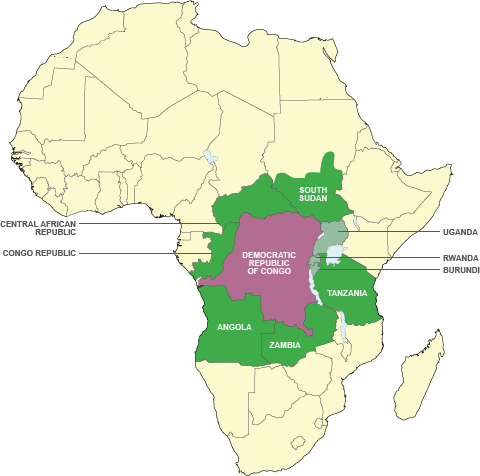Conflict Minerals Policy - SEC Dodd Frank Act

The U.S. Securities and Exchange Commission (“SEC”) has adopted final rules implementing Section 1502 of the Dodd-Frank Wall Street Reform and Consumer Protection Act. These rules impose disclosure and due diligence requirements on publicly-traded companies that manufacture products containing certain minerals designated as “conflict minerals”: gold, columbite-tantalite (coltan), cassiterite, wolframite, and their derivatives, tantalum, tin and tungsten, that have been mined or smelted in the Democratic Republic of the Congo (the “DRC”), Republic of Congo, Angola, Burundi, Central African Republic, Rwanda, South Sudan, Tanzania, Uganda or Zambia.
As a global leader in the lighting industry, Acuity Brands, Inc. (“Acuity Brands”) is committed to ethical business conduct and to providing our customers with responsibly sourced and innovative products that meet their needs.
Acuity Brands is actively working with our supply chain partners to ensure compliance with SEC regulations regarding conflict minerals. Acuity Brands will take all necessary steps to comply with the due diligence and disclosure obligations required by these regulations.
Any conflict minerals disclosures that Acuity Brands is required to make to the SEC are publicly available here.
Our employees, suppliers, customers, and other parties can make inquiries or report concerns and alleged violations related to this policy by emailing us at conflictminerals@acuitybrands.com. Employees will not be disciplined or retaliated against in any way for reporting violations in good faith. Reports may be completed anonymously and will be kept confidential to the extent possible.
Conflict Minerals Supplier Disclosure Request
Frequently Asked Questions
-
1) What is the Dodd Frank Act and how does it apply to lighting products?
The U.S. Securities and Exchange Commission (“SEC”) has adopted final rules implementing Section 1502 of the Dodd-Frank Wall Street Reform and Consumer Protection Act. These rules impose disclosure and due diligence requirements on publicly-traded companies that manufacture products containing certain minerals designated as “conflict minerals” from regions associated with violations of human rights.
-
2) What are the minerals defined as “Conflict Minerals”?
Conflict Minerals consist of gold, columbite-tantalite (coltran), casiterite, wolfamite and their derivatives, tantalum, tin and tungsten, that have been mined or smelted in the Democratic Republic of Congo (the “DRC”) and adjoining countries. These minerals are commonly referred to as “3Ts and Gold”.
-
3) Where are the conflict regions?
The conflict regions include the Democratic Republic of Congo (the “DRC”) and the adjoining countries including the Republic of Congo, Angola, Burundi, Central African Republic, Rwanda, South Sudan, Tanzania, Uganda or Zambia.
-
4) Are any gold and 3T minerals considered “conflict free”?
Yes, minerals sourced outside the conflict regions – OR – validated as compliant with the Conflict-Free Smelter (CFS) program are considered conflict free.
-
5) What are the reporting requirements?
The SEC regulations require that publicly-traded manufacturers conduct due diligence and disclose the use of any conflict minerals used in their products on Form SD.
-
6) Who is responsible for reporting to the SEC?
The original manufacturer of the finished good, or a company that contracts to manufacture the finished good, is required to report to the SEC. Resellers who do not alter a standard off-the-shelf finished goods are not generally considered to be the manufacturer and would not be required to report for that product to the SEC.
-
7) Has Acuity Brands developed a policy regarding Conflict Minerals?
Yes. Acuity Brands is committed to ethical business conduct and to providing our customers with responsibly sourced and innovative products that meet their needs. Our “Conflict Minerals Policy” is available on our web site at www.acuitybrands.com under our Resources tab.
-
8) Has Acuity Brands developed a process to evaluate the use of Conflict Minerals in its products?
Yes, Acuity Brands is actively working with our supply chain partners to ensure compliance with SEC regulations regarding conflict minerals. Acuity Brands will take all necessary steps to comply with the due diligence and disclosure obligations required by these regulations.
-
9) When will any disclosures, if required, be provided by Acuity Brands?
The SEC rule covers products sold in each calendar year. Any conflict minerals disclosures that Acuity Brands is required to make to the SEC are publicly available on our website.
Disclaimer
This document is intended to provide general guidance based on our understanding of the conflict minerals rule. No part of this document constitutes legal advice, and your choice to rely upon any part of this document is voluntary and made at your sole discretion.



